Leadership
The Land Art Generator Initiative (LAGI) was founded in 2008 by Elizabeth Monoian and Robert Ferry to harness the power of art and design in accelerating the global response to climate change. LAGI works with communities worldwide to conceive and realize public art installations that generate renewable energy, harvest water, and provide other essential human-support systems across a range of scales.
Through open-call international design competitions, invited competitions, and participatory design processes, LAGI has built a portfolio of thousands of design proposals and cultivated a global network of artists, designers, engineers, and researchers committed to advancing a post-carbon future that is not only viable, but also beautiful.
Elizabeth and Robert have published, exhibited, and presented globally on the aesthetics of renewable energy and the role of art in providing solutions to climate change. Their publications include Climate Art (2025), Land Art as Climate Action (2022), Land Art of the 21st Century (2020), Return to the Source (2019), Energy Overlays (2018), Powering Places (2016), New Energies (2014), Regenerative Infrastructures (2012), The Time is Now: Public Art of the Sustainable City (2010), A Field Guide to Renewable Energy Technologies, and A Field Guide to Regenerative Water Technologies. See our publications page for more information and for links to purchase.

Elizabeth Monoian
Founding Co-Director and CEO
Elizabeth Monoian is the founding co-director of the Land Art Generator Initiative (LAGI), where she leads the development of creative and social strategies that address climate challenges through art and design. She collaborates with cities, universities, corporations, cultural institutions, and community organizations to structure complex public–private partnerships and deliver tailored approaches to sustainable infrastructure with meaningful social co-benefits. Elizabeth has published, exhibited, and lectured internationally on the aesthetics of renewable energy and the role of art and design in advancing climate solutions and the energy transition. She holds an MFA from Carnegie Mellon University and has received numerous international honors, including the JMK Innovation Prize, Premio Brote Artístico, the Nick Reeves Award for Arts and the Environment, and the Zayed University Provost’s Research Fellowship.
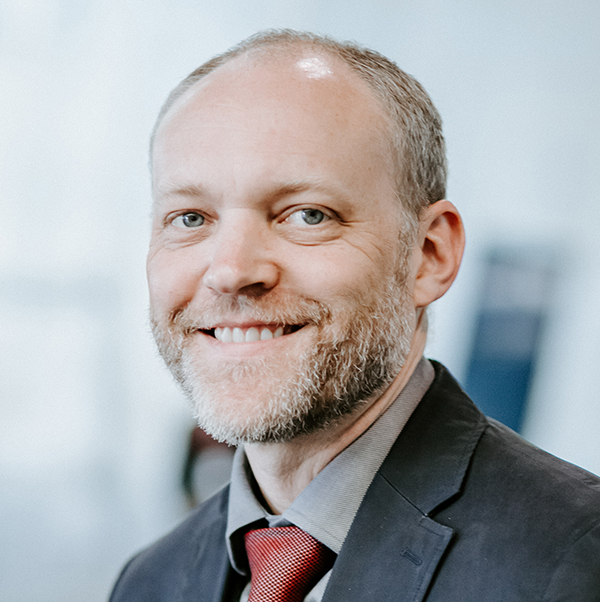
Robert Ferry
Founding Co-Director and COO
Robert Ferry is a registered architect and LEED accredited professional with decades of professional practice experience on both consultant and client sides. He has worked as design manager and project manager on sustainable new urbanist developments across the United States and spent four years as a consultant on large commercial projects in Abu Dhabi, where his focus shifted to ways in which buildings can move beyond net-zero and contribute to the energy needs of the surrounding city. His concept designs pushing the envelope of building-integrated renewable energy technology have been published widely. Through the Land Art Generator, he helps support the critical role of architecture and urban design as part of a comprehensive solution to climate change. Robert is the co-founder of the Land Art Generator, partner at Studied Impact Design, and a graduate of Carnegie Mellon University.
Board of Directors
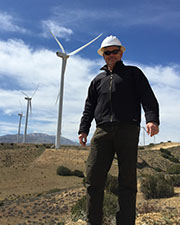
Todd Bartholf
Owner and Renewable Energy Consultant at Todd Bartholf Consulting
LAGI Board Chair
Todd Bartholf is an independent renewable energy consultant and has been active in the industry for over 35 years. He founded his first solar and wind contracting firm in Colorado at the age of 27, was president of an internationally respected systems integration design-build contractor for high-reliability renewable energy applications from 1988–1991 and a senior program officer with the renewable energy team at the international development assistance NGO, Winrock International, through 1996. More recently he held the position of Global Market Segment Director for Renewable Energy at a multinational Fortune 100 environmental engineering firm where he led the design and delivery of numerous large-scale initiatives for a variety of clients in both the public and private sectors, including as energy team lead for the company’s overall project manager role on the MASDAR project in Abu Dhabi from 2006–2010.
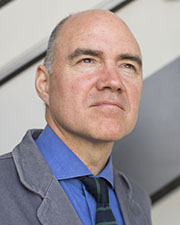
Christopher Choa
Founder at OUTCOMIST
Chris Choa creates sustainable urban value with outcome-oriented masterplanning and program management. An advocate of impact investment, he is known for his entrepreneurial initiative and as a catalyst for growth. A Global Trustee of the Urban Land Institute, Choa is an active board member for a wide range of organizations related to real-estate, urban mobility, energy, and digital design. Prior to OUTCOMIST, Choa led AECOM’s Cities Consulting practice, and was an appointed advisor to the Mayor of London. He is a frequent public speaker and moderator. Chris holds a Master of Architecture (M. Arch) from Harvard University Graduate School of Design and a Bachelor of Arts (B. A.) from Yale University.
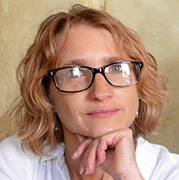
Deborah Hosking
Artist
Deborah Hosking is a media professional, fine artist, and photographer whose career has crossed continents, disciplines and media. Painter, photographer, video/installation artist and filmmaker, her work has been seen in New York, Hong Kong, Paris, Los Angeles, Prague and, of course, Pittsburgh, as well as in film festivals around the country, with a number of awards to her credit. She holds a BFA from Carnegie Mellon University and an MFA in Film & Digital Media from Chatham University.
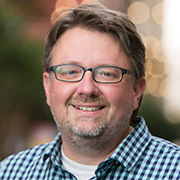
Tim Mollette-Parks
Associate Principal at Mithun
Tim Mollette-Parks brings extensive experience delivering landscape projects of high-design quality in complex urban conditions. Tim’s resume of urban design and built landscape work is characterized by thoughtful design strategies that are highly conceptual, yet clear and flexible enough to endure a project’s changing demands. These design strategies emanate from a careful understanding of the local cultural, ecological and programmatic context. The resulting spaces are functional, delightful and firmly rooted in a sense of place. Working in a wide range of scales and budgets, Tim has been project manager and designer on high-profile landscapes, including work at previous firms such as the Broad Museum Plaza and Streetscape in Los Angeles, the Seaside Way Pedestrian Bridge in Long Beach, the new gardens of the Cooper Hewitt National Design Museum in New York City as well as connectivity and urban design strategies for Los Angeles Metro’s Crenshaw-to-LAX light rail line.
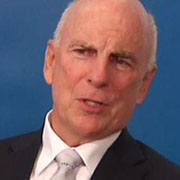
Martin J. Pasqualetti
Professor, School of Geographical Sciences and Urban Planning, Arizona State University
Martin Pasqualetti is a professor in the School of Geographical Sciences and Urban Planning at Arizona State University and former Co-Director of the Energy Policy Information Council (EPIC). He is an elected Fellow of the American Association of Geographers; a recipient of the Alexander and Ilse Melamid Medal (American Geographical Society), and the 2018 Distinguished Alumnus of the Year at the University of California (Riverside). His general research interests encompass three areas of emphasis: energy and society, energy and land use, and renewable energy development. His current research concentrates on the social acceptance of renewable energy landscapes and recycling of energy landscapes. He has served two Arizona governors as chair of the Arizona Solar Energy Advisory Council, and he was as a founding member of the Arizona Solar Center. He serves on 10 editorial boards, including Energy Research & Social Science. He is the ASU liaison to the International Renewable Energy Agency, headquartered in Abu Dhabi.
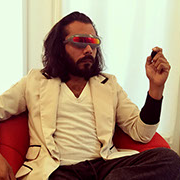
Victor Pérez-Rul
Artist and Founder
Studio Victor Pérez-Rul
Víctor Pérez-Rul (Mexico) is a multidisciplinary artist, whose ongoing artistic research about energy and life merges futurism, natural sciences, cosmology, and engineering with a strong interest in collaborating with industries, institutions, cities, and landscapes. His solar sculptures, experimental collaborative projects, and large-scale installations propose and explore new ways of understanding and perceiving the universe, energy, and the living. Victor’s quest is a neo-futurist approach to the problem of understanding the multidisciplinary crossing between energy and art, urbanism, architecture, and the reconception of our role in the planet.
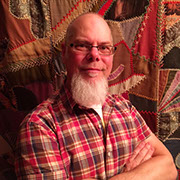
Paul Schifino
Graphic Designer Schifino Design
Paul Schifino, received his degree in Graphic Design from the Art Institute of Pittsburgh in 1979. His professional work has been recognized by publications including: Communication Arts (CA), Graphis, Print Magazine, How Magazine, and ReadyMade magazine. His personal work has been included in exhibits at the Andy Warhol Museum (AMP), the Mattress Factory (Gestures #4 and #14), TRAF Gallery (By Design), the TRAF (Best of Pittsburgh Show), FE Gallery (Pittsburgh 250), and SPACE Gallery (The John Show) among others. His work is also included in the permanent archives of the Mattress Factory. He has served as president of the Board of Directors of the AIGA Pittsburgh, and is a former member of the Advisory Boards of the American Shorts Reading Series, and the Art Institute of Pittsburgh. He currently serves on the Board of Directors of the Land Art Generator Initiative and is the AIGA 100 Liaison for AIGA Pittsburgh.
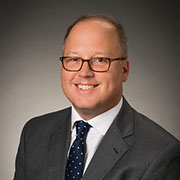
George Riley Thomas II
Member at Metz Lewis Brodman Must O’Keefe LLC
George Riley Thomas II is a member of Metz Lewis Brodman Must O’Keefe LLC, where he chairs the firm’s corporate practice group. Prior to joining Metz Lewis, George practiced in the Washington, DC area. Throughout his career, he has represented businesses in various transactional and commercial matters, concentrating mostly in mergers and acquisitions. George is a 1993 graduate of Harvard University where he studied Modern European History. Following his undergraduate work, George attended the University of Michigan Law School and graduated in 1996.
Advisory Committee
Tafline Laylin
Herman J. Milligan, Jr., Ph.D.
Thaddeus Padlowski
Ann Rosenthal
Naz Shahrokh
